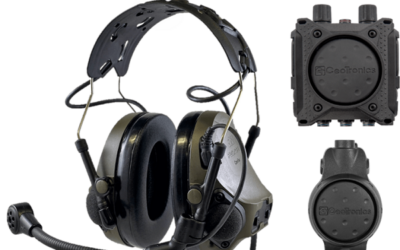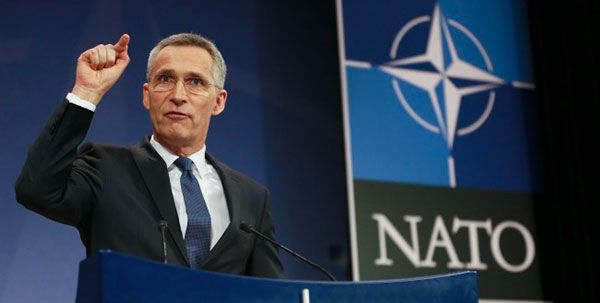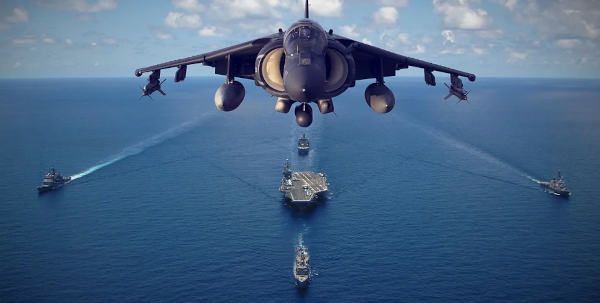House of Commons Report Raises Questions
With the Cold War twenty years dead, it is tempting to think that the tensions in the Arctic region that gave rise to Alistair Maclean’s Ice Station Zebra novel in 1963 (and the 1968 Rock Hudson movie of the same name) have also disappeared. The reality, however, is somewhat different, as a report published on 15 August by the British House of Commons Defence Committee makes clear.
On Thin Ice: UK Defence in the Arctic, like most parliamentary reports, is scarcely earth-shattering in its conclusions or recommendations. It does, however, prompt real thought if properly read: it pulls few punches with regard to the deteriorating situation in the High North and publicly draws the government’s attention to what could (and should) be done to remedy it.
It sets the scene by stating that, as the ice recedes in the Arctic, the region has become more accessible to navigation – and to exploitation of its (considerable) natural resources. This has led to a measurable increase in military activity in the region. “At the forefront of this activity is the Russian Federation. Although there is a divergence of views on Russia’s motivations, it is difficult to conclude that this build-up of military strength is proportionate to an exclusively defensive outlook. Russia has shown itself to be ready to use military force to secure political advantage and the disputed operation of a number of international legal norms in the Arctic is vulnerable to exploitation by a revisionist state,” the report states.
Geopolitics plays an enormous part in the evolution of policy towards the Arctic – particularly since a wider circle of nations was admitted to the Arctic Council as observers in 2013, including China, Japan, India, Singapore and South Korea. In this respect it is worth noting the People’s Liberation Army Navy (PLAN) will commission its second large nuclear-powered icebreaker next year – and that some experienced China-watchers suggest the PLAN may be developing plans for submarine operations in the Arctic. It is also worth considering that the Greenland-Iceland-UK (GIUK) gap – the focus of so much strategic planning during the Cold War – remains critical to NATO’s ability to control the North Atlantic during any potential conflict with Russia – which the committee, as well as NATO, see as one of the principal threats to a peaceful resolution of the Arctic issue.
In evidence to the Committee earlier this year Dr Igor Sutyagin, Senior Research Fellow in Russia Studies at RUSI, argued “The Arctic is terribly important for Russia, because it is responsible for … between 12% to 15% of Russian GDP and 80% of Russian gas. If there were a serious sabotage act there, it would be a very serious blow to the Russian economy and so Russian national security in general, not only defence and military security. That is why they want the ability to react to that and to defend it if necessary.” The problem has become an issue of trust now – NATO does not believe Russian assertions its policy is defensive, given Moscow’s proven preparedness to resort to armed conflict in Ukraine. That gives rise to an atmosphere of uncertainty – a key contributor to rapid escalation.
“Military activity is rising in the region in response to this new uncertainty and its strategic importance to the UK requires the government to react. The UK sustains a range of capabilities which could play decisive roles. The recent focus on expeditionary operations in hot weather climates has, however, reduced the focus on the importance of sustaining specialist capability needed to operate in the Arctic and High North. New efforts should be made to regenerate this expertise,” the report continues. A key issue here is the capability to maintain competence in anti-submarine warfare capability in the region – a capability for which the Royal Navy was justifiably renowned during the Cold War. The sad truth is that Britain simply lacks the capacity to return to that level of competence: a minimum of eight nuclear-powered attack submarines (SSN) are required to be able to claim such a level of capability – and the RN is lucky to be able to muster six on a good day.
Nor does the nation’s return to carrier strike group operations, as embodied in the new QUEEN ELIZABETH-class aircraft carrier and F-35B LIGHTNING II combination – make a substantive difference to the picture. Or, rather, any difference it makes in capability is to a large degree offset by the addition of an even more attractive maritime target set for hostile submarines.
The leadership which the UK has previously shown in the defence of the region shou“ld be reinstated, and the new priority which NATO has given to the North Atlantic should be accompanied by a renewed focus of the source of the threat in the High North,” the report states, and concludes “If the definition of a leading defence nation is one which has the ability to deploy a range of capabilities anywhere in the world, then this includes the unique operating environment of the Arctic and the High North. Being able to do so is ultimately a question of resource and a question of ambition, and we call upon the government to show leadership in providing both.”
MONCh readers interested in the High North and Arctic conundrum are recommended to read the report, which is downloadable in the public domain.
























